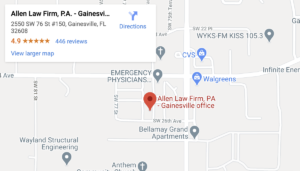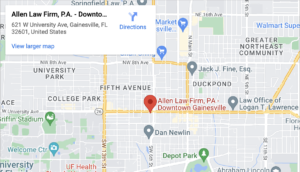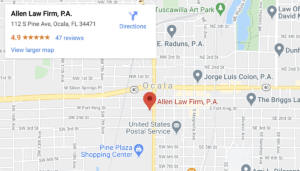
Doctors rate concussions as mild brain injuries. Unlike cerebral contusions and subdural hematomas, concussions rarely lead to death. Instead, they cause a range of symptoms that affect your physical, cognitive, and emotional well-being.
These symptoms often include amnesia. People with concussions can lose their memory for many reasons. Most concussion patients lose their memories of the incident that damaged their brains. But some lose more than that. On rare occasions, accident victims even lose their ability to make new memories.
How Your Brain Makes Memories

Scientists do not know exactly how the brain makes memories. But they hypothesize that memories correspond to a pattern of brain cells, also called neurons, firing together. By mixing and matching combinations, the brain can store a nearly infinite number of memories.
Memories come in two forms. Short-term memories are limited in both size and duration. Most people can only hold about seven pieces of information in short-term memory.
Short-term memories also have a limited duration. Most people can only hold information in short-term memory for about 30 seconds. If you need to retain information for longer, you must repeat it in your mind or out loud. Repetition can refresh short-term memories or move them into long-term memory.
Long-term memories act as you would expect from their name. You retain these memories for longer than 30 seconds. Importantly, the more you rehearse this information, the stronger the memory becomes. Training and education rely on repetition to strengthen memories.
The memory process includes two steps:
Storage
You form a memory by observing something with your senses. You fix a memory when your brain assigns a brain cell pattern to it. Fixation assures the memory will remain for later retrieval.
Scientists do not know how the brain decides which observations to fix into memories. But your appreciation of the importance of the observation might play a role. Thus, you will remember your wedding or a car accident but not what you ate for breakfast two weeks ago.
Retrieval
Retrieval happens when you recall the memory. Again, scientists do not know exactly how the brain retrieves the memory you are searching for. But they believe it has to do with the patterns used to fix a memory.
Related memories have similar patterns. When the brain searches for a memory, it looks for the patterns for that type of memory. And the more you recall the memory, the easier it becomes for the brain to find it.
How Concussions Happen
Your brain is surrounded by a layer of cerebrospinal fluid (CSF). The CSF cushions the brain from impacting the inside of the skull. It does this through fluid resistance. When your head gets jostled, the CSF slows the brain’s movement. It is slightly thicker than water and forms a pressure wave that holds the brain in place.
This pressure wave can damage or destroy brain cells. In response to the cellular damage, your brain triggers an inflammatory response. Inflammation protects the body from infections by triggering swelling and a fever. Swelling traps pathogens, and fever kills them.
But inflammation in the brain can produce side effects. Your brain cells need oxygen to function properly. When the brain swells, blood flow decreases, and your brain cells might not get enough oxygen.
Brain cells also have an optimal operating temperature. A fever can cause your brain cells to misfire. This explains why people with high fevers can suffer from confusion or even delirium.
As a result, people with a concussion can suffer a range of symptoms, including:
- Confusion
- Amnesia
- Clumsiness
- Drowsiness
- Slurred speech
- Ringing ears
- Blurry vision
- Headache
Concussion patients will have widely varying experiences with concussion symptoms. The symptoms you experience will depend on the severity of the brain damage and the areas of the brain affected.
Reasons You May Suffer from Amnesia After a Concussion
You might suffer from amnesia after a concussion for several reasons, including:
The Injury Interrupted the Memory
Many people who have suffered a concussion cannot recall the incident that caused the concussion. This type of amnesia can happen when the brain simply does not hold any memory of the injury.
When you suffer a concussion, the shock of the impact can cause your brain to shut down temporarily. In a mild concussion, you will spontaneously recover. After a severe concussion, you might remain unconscious for several minutes. But in both cases, the brain temporarily goes offline.
You can lose memories of your accident because your brain was interrupted while forming and fixing a memory of it. As a result, you will not remember your accident simply because those memories do not exist.
Trauma Blocks Recall of the Memory
Post-traumatic stress disorder (PTSD) happens when your mind reacts to a traumatic event by heightening your sensitivity to stimuli. As a result, you will suffer from:
- Anxiety
- Paranoia
- Disproportionate reactions to triggers
- Flashbacks
- Nightmares
- Emotional outbursts
Amnesia can also result from PTSD. Your mind can block these memories to prevent them from triggering you. In other words, the memories are fixed in your brain. But your brain cannot retrieve them because your mind will not allow it.
Your Injury Damaged the Memory Centers of the Brain
In a worst-case scenario, you can lose your memory because your injury affected the memory centers of the brain. For example, if you damage the brain cells that form the pattern for a set of memories, your brain cannot retrieve those memories.
And if you suffer brain damage to the cells that form or fix memories, your memory loss may persist for the rest of your life.
Contact a Florida Personal Injury Lawyer for Help
Most accident victims only experience mild memory loss after a concussion. Other than memories of their injury, these people will have a fully-functioning memory once their brain recovers from the concussion.
But severe memory loss can disable you from working or even caring for yourself. Without the ability to learn new information, you could be untrainable. You might even become a danger to yourself or others if you cannot remember things like how to get home or whether you left a candle burning in the bathroom. Contact Allen Law Accident & Injury Lawyers at (877) 255-3652 for a free consultation to discuss your memory loss after a concussion and the compensation you can seek. Our Florida personal injury lawyers are standing by.





